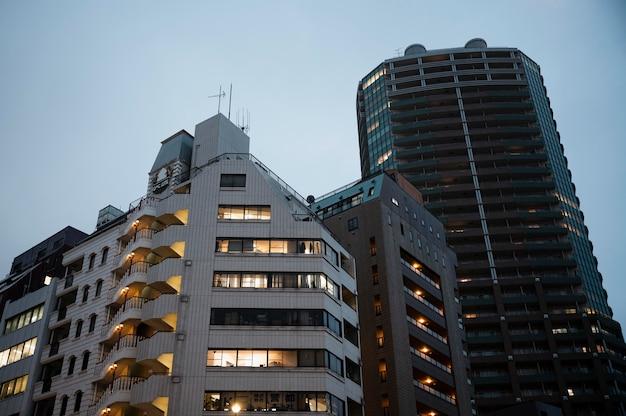8 Must-Follow Tips to Make Your Commercial Space More Secure
Throughout the world, security is a common concern. As a commercial property owner, if you’re finding ways to safeguard your building and assets while ensuring the safety and well-being of your employees and customers, worry not!
Let’s delve into this detailed blog post to discover eight essential security tips that will help you out.
1. Conduct a Comprehensive Risk Assessment
First, evaluate your commercial space thoroughly to identify prospective security vulnerabilities. During this assessment, be sure to inspect all entrances, windows, alleyways, and other access points.
Reach out to security professionals who can help uncover hidden weaknesses, such as fencing or unmonitored areas. Remember to document all these risks to gain a clear roadmap for improving your security measures.
2. Improve Lighting Around the Premises
Effective lighting is among the simplest and most effective deterrents to criminal activities. So, be wise and make sure that all entry points, parking lots, and walkways are well-lit, especially at night.
Invest in LED lighting to boost efficiency and brightness. Integrating motion sensor lights that activate when movement is detected is another good way to secure your commercial space.
Additionally, consider sustainable options, such as solar-powered fixtures, for illuminative security. Never ignore dark corners and shadowy areas where potential intruders could conceal themselves.
3. Invest in High-Quality Locks & Access Control Systems
Your next move is to upgrade your commercial space’s security by installing high-security locks that are resistant to picking and bumping. Most security professionals advise commercial property owners to consider electronic access control systems, such as;
- keycard entry,
- biometric scanners, and others.
These systems can restrict access to authorised personnel, enhance security, and offer valuable tracking capabilities. Such features can empower you to monitor who enters and exits the premises at any given time.
Moreover, you can also choose and integrate the best access control solutions with other security systems to attain ultimate protection.
4. Install a State-of-the-Art Surveillance System
The step revolves around implementing a comprehensive surveillance system using high-definition CCTV cameras. Consider placing them to cover all angles of your commercial property, including potential blind spots. Always choose cameras with various features, such as;
- night vision capabilities,
- motion detection, and
- cloud storage.
These features and capabilities combine to ensure that the footage is safely stored. Many modern systems—including the top-notch commercial video intercom system—provide remote access through mobile apps. So, you can monitor real-time footage and review recorded videos from smartphones or computers.
Overall, taking full advantage of these security surveillance systems can enhance your ability to respond to incidents promptly.
5. Implement a Comprehensive Alarm System
Equipping your commercial building with a robust alarm system can make all the difference. While choosing the right alarm system, look at whether it has features, like
- intrusion detection,
- glass break sensors,
- fire alarms, and
- panic buttons.
Always opt for an alarm system that facilitates 24/7 monitoring through a reputable security provider. Doing so can ensure immediate alerts to both you and local authorities in the event of a breach or emergency.
Once the best system is chosen and installed, test it regularly and conduct drills. This will ensure that all safety measures function as intended.
6. Establish a Security Personnel Presence
Based on your business type and its geographical location, hiring trained security personnel or contracting a well-reputed security firm will make things easier.
Keep in mind that intruders are less likely to target properties where they may be confronted. A professional presence can significantly deter criminal activities.
Before you hire, assess the level of professionalism and dedication of the prospective security staff by enquiring several questions;
- how to respond in an emergency,
- how they resolve conflicts, and
- how they provide exceptional customer service.
Once you have ensured all these aspects, work with your intended security professionals to create a safe and welcoming environment for your employees and customers.
7. Create a Security Policy and Train Your Staff
Develop and document a thorough security protocol that specifies different response plans for different kinds of emergencies, including;
- robbery,
- intrusion, and
- any other type of security risk.
Run periodic personnel training seminars to guarantee that everybody grasps and can adequately follow these procedures. Promote a safe culture where workers feel free to promptly report any strange events.
Educating employees and encouraging them to be diligent will create a sense of companionship. Therefore, security accountability would be a matter of seconds.
8. Nurture Connections with Local Law Enforcement
Start and keep open lines of negotiation with regional law enforcement. Have regular conversations to learn about crime trends and patterns impacting your region, ask their opinion on improving security measures, and follow them.
To build goodwill and lay the groundwork for future relations, get involved in local projects, including neighborhood watch schemes. A good working relationship with law enforcement can give you more peace of mind and allow for faster reaction times in crises.




